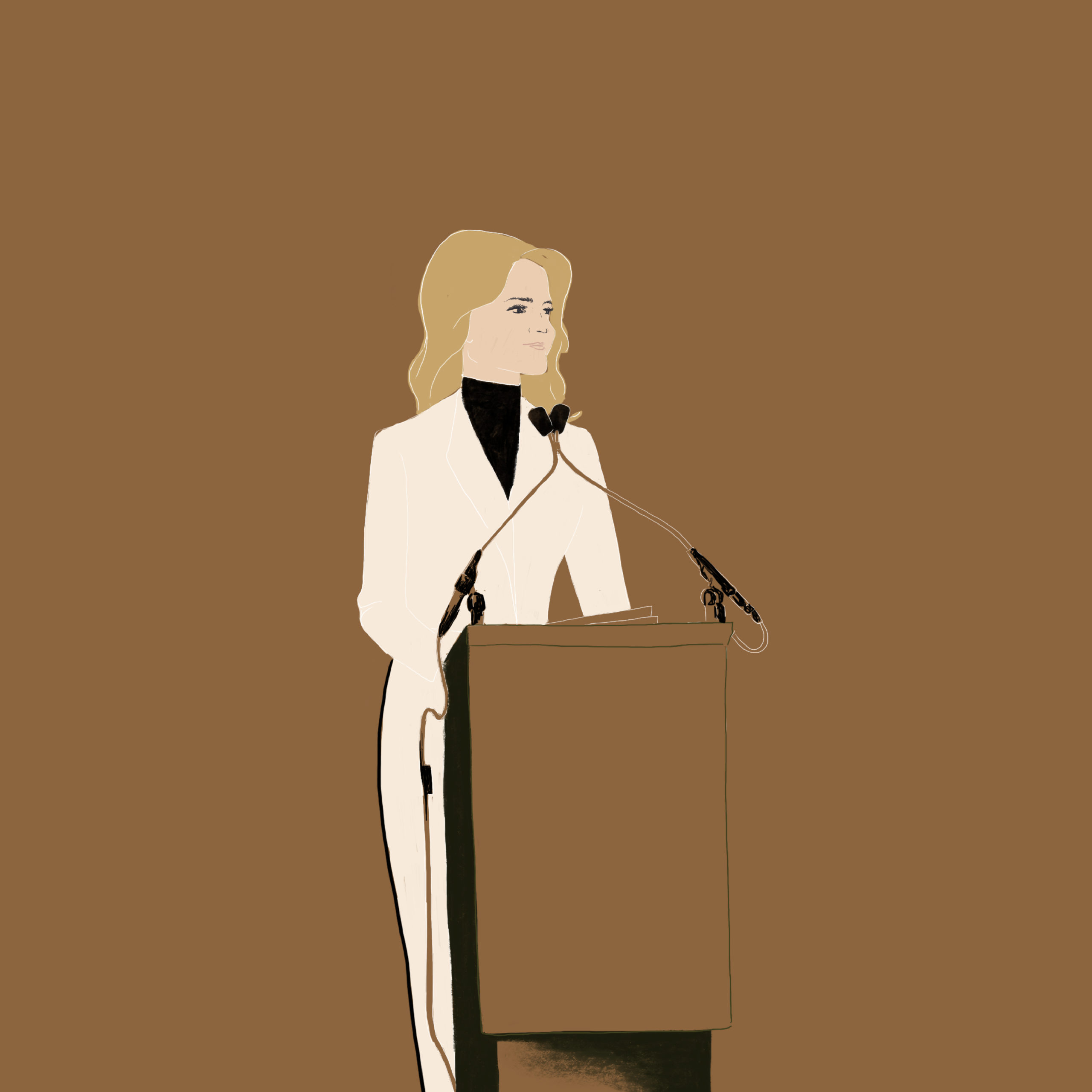Welcome to the first installment of the Enneagram series! I am so excited to explore the Enneagram in greater detail and celebrate those of us who identify with the Type One personality. If you are a Type One, this post is meant to offer some clarity into your personality and ideas for improving your work life. If you are not a Type One, chances are you know one. My hope is that this gives you greater compassion and appreciation for the Perfectionists in your life.
In this series, we will be heavily referencing The Modern Enneagram, which was one of the options for #dropcapbookclub on Instagram. Because the votes were tied, we will be going through Gary Vaynerchuk’s Crushing It in book club, but I will be doing this blog series on the Enneagram for those of you who want to learn more about this wonderful personality tool. You can grab a copy of The Modern Enneagram on Amazon, which will give you additional thoughts and insights into your type and how it plays with others.
We’re going to focus on each personality in the context of a work environment. Our lives are incredibly complex, and The Modern Enneagram explores family dynamics, romantic relationships, and personal development, but we won’t be exploring those issues in this series.
In each type’s post, you’ll learn:
-
Your Core Motivation
-
How to Handle Stress
-
Creating the Right Work Environment
The Modern Enneagram starts with a story of “Julia” (who is a Type Seven) and I found it extremely helpful in understanding how the Enneagram model might be applied to a real person. So let’s start with our own story of a fictional Type One named Kate. Keep in mind that the point of this story is to notice the patterns of motivation, not the specific circumstances or behavior.
“Kate is a 24-year-old non-profit event planner living in a bustling city. She is in an entry-level position for a company she loves and spends her hours outside of the office participating in social organizations around town.”
We’ll use Kate as an example of a Type One as we dive into the deeper personality and core motivations of this type.

artwork by Elicia Edijanto
Core Motivation
Motivation – inspired by the idea of an improved world. Possess strong ethics and sense of integrity.
Basic Fear – fear of being wrong or defective. (very self-critical!)
“Kate is motivated by the desire to create a more inclusive world for children with disabilities. Growing up, Kate’s younger sister suffered from a developmental condition that made it difficult to live a “normal” life. From an early age, Kate felt responsible for her younger sister and determined to create opportunities for her to experience normalcy despite her limitations. After getting her degree in social work from a reputable university, Kate accepted a job with a national nonprofit organization whose mission was to raise awareness and financial aid for children dealing with the same conditions as Kate’s younger sister. Kate loves being an event planner and organizing experiences just like the ones she tried to create for her family growing up.”
Kate’s Unfolding Story
“Kate’s perfectionist tendencies make her an incredibly effective team member and excellent planner. She is organized and methodical in her approach, and has a seemingly inhuman ability to anticipate potential needs or roadblocks.
When things are going well, others comment on her thoughtfulness and attention to detail. She is proactive and inspiring, bringing her sense of excellence and order to every aspect of her job. Those who work with her compliment her strong work ethic and excellent delivery.
However, when the planning process gets stressful, Kate can be prone to spiraling into an average or unhealthy state. When it becomes difficult to meet her own standard of excellence, Kate gets frustrated with the limitations of others – especially when they don’t seem to try as hard as she does. Her primary concern is to not let others see her mistakes, so she becomes critical of others.
When left unchecked, Kate’s anger can become resentment. Instead of building others up, she’ll redo their work or pick it apart. In her own pursuit of the “right” way, she forgets the purpose of her work. She works extra hours and obsesses over the flaws of her team and company. This fixation on the negative leaves her feeling deeply depressed.”
Stress
In states of stress, Ones take on the characteristics of an unhealthy Type Four. When their mission fails, the can’t meet their goals, or they encounter too much resistance, Ones experience strong negative emotions, becoming angry at themselves and others. They feel paralyzed by such strong negative emotions and feel they can’t function at the level they are used to.
When stress progresses, they begin hating themselves and experiencing morbid thoughts. They blame themselves and others, driving away anyone who tries to help them.
How to Counteract Stress for a Type One
-
Prioritize taking care of yourself.
“When Kate knows things are starting to get stressful, she makes a point to go to yoga in the mornings. On the week of a big event, Kate prioritizes sleep and often takes a break during the day for a few minutes of guided meditation. She knows that relaxation can calm her nerves and counteract her feelings of personal responsibility.”
-
Use your frustration as an opportunity to patiently teach others.
“Instead of taking over others’ roles or indulging her self-righteous impatience, Kate spends time before a project calmly explaining to volunteers and team members how things might be done in a better or more efficient way, understanding that change takes time. She compliments the efforts of others and makes it a point to recognize their progress.”
-
Remind yourself that irritation with others is counterproductive for seeing results.
“Kate’s mindful that criticism of others’ mistakes breeds resentment and does little to improve her situation. Even when she’s frustrated, she tries to remember three things she is grateful to others for to keep herself in check.”
-
Explore your negative feelings and emotional impulses.
“Even though Kate’s anger and depression make her uncomfortable, she knows that the messy areas are a part of being human. She regularly meets with a few close friends that she feels safe with to express her resentment and listen to their advice. When she feels particularly stuck, she seeks professional therapeutic help to navigate difficult relationships and emotional triggers.”
-
Recognize that anger is your weakness.
“Kate knows that she is easily offended when others do something wrong. However, she reminds herself that resentment isolates her from others and makes it difficult to connect on a deeper level. Instead of suppressing her anger, she recognizes it, deals with it, and makes a conscious effort to move forward. She apologizes when she is overly critical of a team member and practices the vulnerability of admitting to her own mistakes, becoming pleasantly surprised at the quick forgiveness of others and acceptance for her messier parts.”
Work Environment
The most important thing for a Type One to experience at work is purpose. As a Type One entrepreneur, it is crucial that you have a clear mission for why you started your business, and remind yourself often of how your business improves your industry and your world. Here are three other ideas for incorporating your Type One strengths in your business:
-
Create an opportunity to educate others. Whether you are hosting a workshop, teaching a course, or sharing tips on social media – you will enjoy the experience of passing on your values and ideas to others.
-
Incorporate philanthropy into your business model. In addition to your own persona service to your industry, you can make an even bigger impact by using your revenue and influence to support a cause that you are passionate about.
-
Lead with organization. One of your strengths as a Type One personality is strong organization skills and analytical thinking. Communicate to your customers and clients that organization is a key part of your brand’s experience.
“When we first met Kate, her deep love for her sister gave her passion for her work. She was motivated by her desire to create a more inclusive world for children with disabilities. Her pursuit of a better world for children just like her sister made her an effective advocate in the nonprofit world. But her relentless pursuit of her cause was also a potential weakness in working with others. When she perceived that others didn’t care as much as she did, she would sink into frustration and resentment of their shortcomings.
By gaining a deeper understanding of herself and how she handles stress, Kate will not only be an inspiring agent of change, but an effective leader of her team. She will be admired and respected internally at her company and externally by the families who benefit by her contribution and efforts.
Although Kate may struggle with her perfectionist tendencies throughout her life, she will experience the freedom that comes from building healthy workplace friendships who will support her even when she makes a mistake or has a bad day. She is continuously working on changing her black-and-white mindset into a more patient and forgiving perspective. She is recognizing that change takes time. By shifting her impatience and criticism into mentoring younger volunteers, she will leave a lasting legacy for the company and continually create magical experiences for the children who attend her events.
It turns out that her greatest area of influence was her ability to speak to the heroic aspirations in others and lead them to their greater potential. By becoming a team player, she has now contributed to building the reality of a kinder world.”
>
“How do you like this new series? Do you identify as an Enneagram Type One? Comment below with your own story!”
If you enjoy learning more about the Enneagram and are curious about how to lead with your personality in your business, you may enjoy participating in our Enneagram for Entrepreneurs course. Click the link below to find out more!

I’m so glad you’re doing this! I was just looking into this stuff the other day and wanting to learn more about the enneagram. Excited to see the rest!
Great read. I feel very identified with this type. Along the years I’ve been incorporating some of the advices above and can vouch for their effectiveness. Taking breaks, using organization as a core value in my business and exploring my feelings before dealing with my employees has been key to me. Thank you for sharing!
So glad you enjoyed it!
These are gorgeous and so informative! Love!
Accurately written. It helps to understand myself better to deal with people better. Thank you for this.